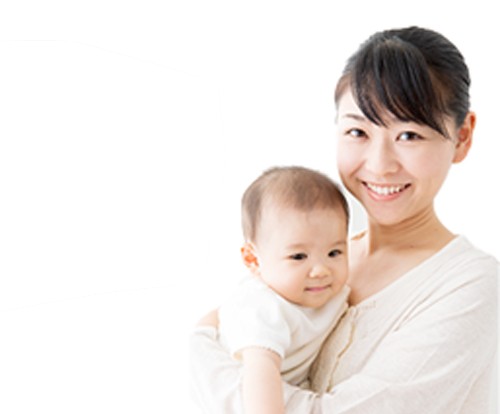Scope of Work for a Confinement Attendant

Baby Care
During the confinement period, a confinement attendant provides dedicated care for the newborn, ensuring their health and well-being. The responsibilities under this category include:
Feeding
Feeding the baby is one of the primary tasks for a confinement attendant. They are responsible for preparing and providing the baby with the appropriate milk or breastfeeding assistance as per the mother’s preference. The confinement attendant ensures that the baby is fed at regular intervals, maintaining a proper feeding schedule. 陪月
Diaper Changing
Proper hygiene is essential for the baby’s health. The confinement attendant takes care of changing the baby’s diapers regularly, ensuring cleanliness and preventing rashes or discomfort.
Bathing
Bathing the baby requires delicate handling and attention. The confinement attendant is skilled in providing gentle baths to the baby, maintaining hygiene and ensuring their comfort throughout the process.
Cleaning the Umbilical Cord
The umbilical cord stump requires careful cleaning and care to prevent infection. The confinement attendant is responsible for cleaning and disinfecting the umbilical cord stump following proper guidelines to promote quick healing.
Washing Baby Clothes
Keeping the baby’s clothes clean and hygienic is crucial. The confinement attendant takes care of washing and drying the baby’s clothes, ensuring they are fresh and free from any potential irritants.
Cleaning and Disinfecting Milk Bottles
Maintaining proper hygiene of the milk bottles is vital to prevent any contamination. The confinement attendant ensures the thorough cleaning and sterilization of milk bottles, minimizing the risk of infections for the baby.
Maternal Care
The confinement period is also a crucial time for the mother’s recovery and well-being. The confinement attendant provides support and assistance in various aspects of maternal care, which include:
Nutritious Meal Preparation
The confinement attendant prepares nourishing meals tailored to the mother’s physical condition and requirements. These meals often include nourishing soups, stewed chicken wine, melted tea, ginger rice, ginger vinegar, and other ingredients known for their postpartum healing properties.
Supporting Mother’s Recovery
The confinement attendant assists the mother in her recovery process by providing the necessary care and attention. They offer emotional support, help with breastfeeding, and ensure the mother is comfortable and well-rested.
Nourishing Soups and Meals
Specialized soups and meals are prepared by the confinement attendant to aid in the mother’s recovery. These meals are rich in nutrients and designed to replenish the mother’s energy levels and promote overall wellness.
Assisting with Dietary Requirements
The confinement attendant takes into account any specific dietary requirements or restrictions the mother may have and prepares meals accordingly. They ensure that the mother’s dietary needs are met while considering any cultural or personal preferences.
Teaching Nursing Skills
In addition to caring for the baby and mother, confinement attendants also play a crucial role in educating and sharing nursing skills with the family members involved in the care of the newborn. Their responsibilities include:
Sharing Knowledge and Experience
Confinement attendants share their knowledge and experience regarding baby care, breastfeeding techniques, sleep training, and other essential aspects of newborn care. They provide guidance and answer any questions the family members may have.
Educating Mothers, Families, and Domestic Helpers
Confinement attendants act as educators, teaching mothers, other family members, and domestic helpers about proper baby care practices. They demonstrate techniques, address concerns, and provide hands-on training to ensure everyone involved is well-equipped to handle the baby’s needs.
Breastfeeding Techniques
For mothers who choose to breastfeed, confinement attendants offer support and guidance in mastering proper breastfeeding techniques. They provide assistance in latching, positioning, and addressing common breastfeeding challenges, ensuring a successful breastfeeding journey.
Sleep Training
Establishing healthy sleep patterns for the baby is crucial for their development. Confinement attendants share effective sleep training techniques with the parents, helping them create a conducive sleep environment and encouraging healthy sleep habits for the newborn.
Simple Housework
While the primary focus of a confinement attendant is on baby care and maternal support, they also assist with certain simple housework tasks. These tasks include:
Cleaning Up Dishes
After meals, the confinement attendant takes care of cleaning up the dishes, ensuring a clean and organized kitchen space.
Purchasing Ingredients
If required, the confinement attendant may assist in purchasing ingredients for meal preparation. They ensure that the necessary ingredients are procured while considering the mother’s dietary requirements and preferences.
Light Cleaning Tasks
Apart from dishes and ingredient procurement, the confinement attendant may perform light cleaning tasks such as tidying up the living area, organizing the baby’s belongings, and maintaining cleanliness in the immediate surroundings.
Conclusion
Confinement attendants play a vital role in providing comprehensive care during the confinement period. From baby care to maternal support, teaching nursing skills, and assisting with simple housework, their responsibilities are varied and critical for the well-being of both the mother and the newborn. By understanding the scope of work of confinement attendants, families can ensure a nurturing and supportive environment during this significant phase of life.
